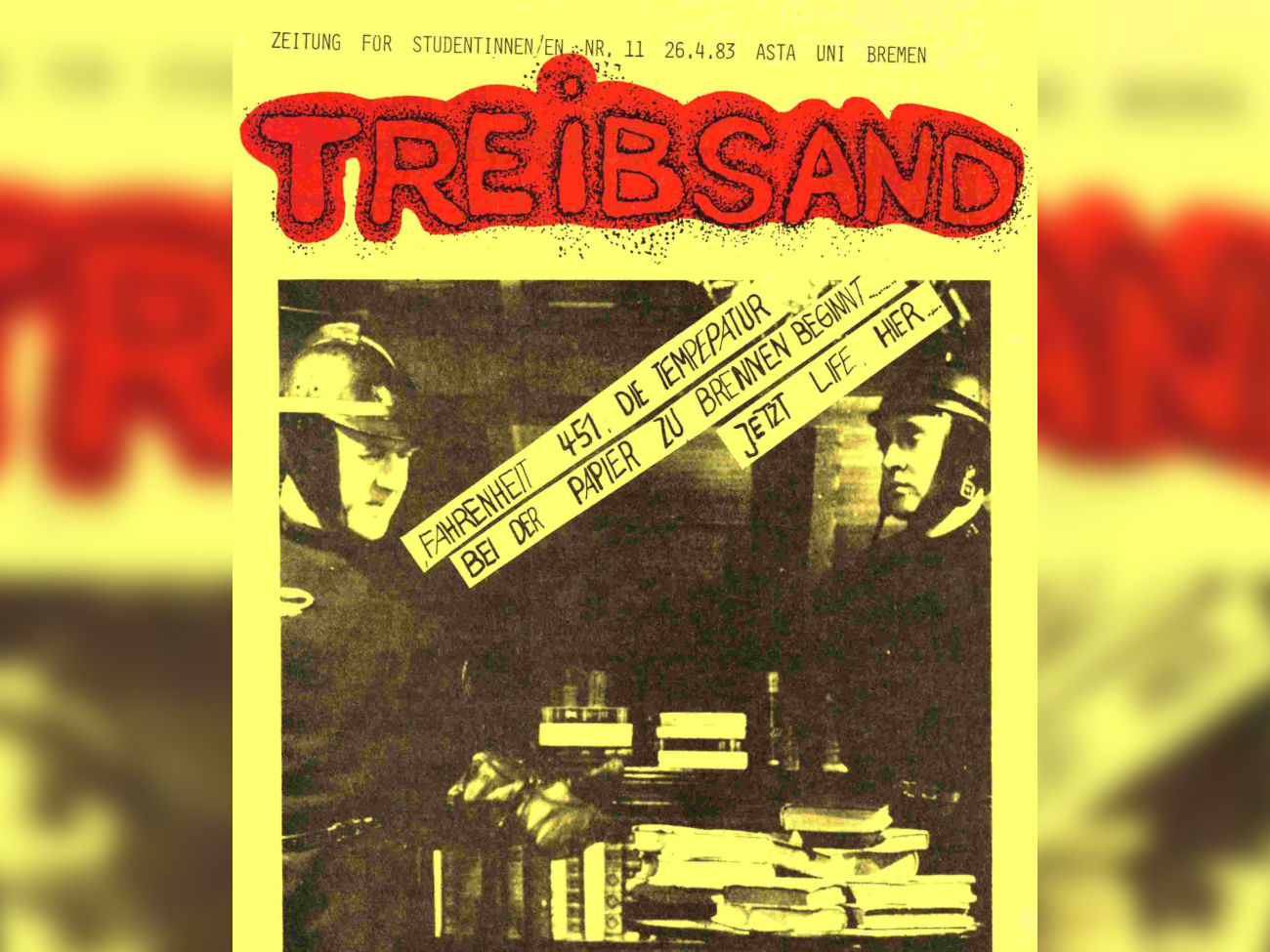
© Patrick Daxenbichler / AdobeStock
Back Then: Thousands of Books Discovered in Waste Paper Bins
Disposal by the university library caused outrage
Outcry among students and employees of the University of Bremen: A major discarding action by the University Library of Bremen earned fierce criticism in 1983. Books in the waste paper container? That was simply not acceptable.
On April 26, 1983, the AStA Students’ Union reported the incident for the first time in its “Treibsand” newspaper. It referred to information provided by a university lecturer and several students who had discovered numerous books in the paper container during the semester break. Some could be saved, while the majority, probably 2,000 to 3,000 books, ended up in the Bremen incinerator.
“Are we now the first literary heated library?”
The AStA compared the incident to the events in the then very well-known film “Fahrenheit 451” by Francois Truffaut, in which the possession and reading of books is forbidden and they are destroyed. With phrases such as “Fahrenheit 451 became a reality in the nearby incinerator” and “Are we now the first literary heated library?” the displeasure with the action was particularly evident.
Works by Marx and Engels Destroyed?
The article claimed that mainly political works – such as those by Marx and Engels – had been destroyed, as well as books on religious studies and sociology. But that was not all: it turned out that the first pages were missing and, according to a library employee, had been torn out by the employees themselves in order to additionally devalue them.
At least that was confirmed by the head of the History and Social Sciences Department. She additionally stated that the books that had been sorted out had a value of 5,000 Deutsche Mark. This estimate was also supported by the staff member responsible for rare books and manuscripts, who estimated a destroyed 12-volume collection of Bismarck speeches to be worth 800 Deutsche Mark alone.

© Universitätsarchiv
Thus, both staff members contradicted the statement of the library director, who commented on the accusations following open letters from the AStA. He stated that he had decided to dispose of old and unusable stock – especially that of the Pedagogical University, a predecessor of the university – due to a lack of space, and emphasized that the books had had their value assessed by antiquarians beforehand. This had apparently been a perfectly normal occurrence of books being assigned to waste.
Disciplinary Measures Were Discontinued
Shortly thereafter, the library employees who had contacted the AStA were threatened with disciplinary action for going public with their internal observations. In the motion for resolution for the meeting on June 8, 1983, the Academic Senate (AS) already requested the president to order the discontinuation of these proceedings. The request was granted. Threatening such steps was regarded as suppression of the free formation of opinion and criticism and was firmly rejected.
At the following meeting, the AStA representative was able to present salvaged books as proof that indeed not only unusable and worthless items had been destroyed. The AS showed understanding for the students’ anger, especially in view of BAföG loan cuts. However, one of the senate members made it clear in a statement that for him it was a proxy debate “behind which, in reality, completely different conflicts are hidden.” He also spoke out against the repeated portrayal of the incident as a “book burning,” in reference to events on May 10, 1933, in particular.
In the end, it was stated that in the future, disposals such as this would have to be made public and guidelines would have to be developed to ensure more transparency. Furthermore, it was decided that the books themselves, even as sorted out stock, retained the character of work materials and were therefore be offered to university members first.
Thus, with this regulation, the controversial disposal action may actually have ended well for the future. In any case, it ended far less dramatically and with far fewer consequences than described in the dystopia “Fahrenheit 451.”